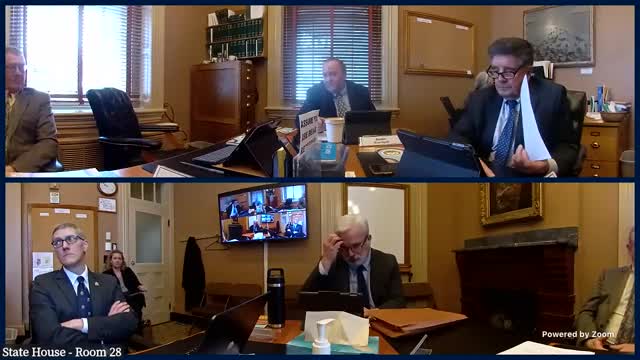Senate Agriculture committee reviews recent ag bills and a dispute over state ag water-quality oversight
Get AI-powered insights, summaries, and transcripts
Subscribe
Summary
Committee counsel summarized 2023–24 agriculture bills and outlined choices after an EPA directive that ANR strengthen permitting and inspections under the Clean Water Act.
Committee counsel reviewed a slate of agricultural bills that passed or moved in 2023–24 and outlined policy questions for 2025, and the committee discussed tensions between the Agency of Agriculture (Agency of Ag) and the Agency of Natural Resources (ANR) after an EPA directive concerning Clean Water Act permitting.
What the committee was told: Counsel summarized enactments and changes that affect farmers and agricultural businesses, including updates to the state poultry-slaughter exemption, nursery dealer licensing, a temporary small-farmer diversification grant in the appropriations bill, restrictions on sales of dogs and cats via pet shops and limits on certain wildlife parts, and the state-level regulation of neonicotinoid pesticide-treated seed tied to New York’s implementation timetable.
On poultry: Counsel said the federal Poultry Products Inspection Act permits an exemption for producers slaughtering fewer than 25,000 birds a year; Vermont’s 2024 change allows producers operating under that state exemption to sell parts of the bird (not just whole birds), a move intended to expand small producers’ retail and farmers-market sales.
On pesticides and seed: Counsel described 2024 statutory changes that limit use of neonicotinoid pesticides and ban treated-article seed in some circumstances. The committee heard that Vermont tied its effective date to New York’s implementation timetable to reduce the risk that seed supplies would be unavailable to Vermont farmers when the ban takes effect.
On grants and program changes: Counsel noted that a small-farmer diversification grant program originally proposed at $350,000 was enacted at $150,000 for one year in the appropriations bill. Counsel also described technical changes to water-quality financing programs, including adjustments to the Vermont filter-strip program and the Farm and Economic Practices (FAP) financing to improve terms for farmers.
Clean Water Act dispute and program options: Counsel and several senators outlined a dispute triggered by EPA review of Vermont’s delegated Clean Water Act permitting. Counsel described EPA’s corrective-action demand to ANR, saying EPA concluded ANR's delegated program needed stronger inspection and permitting for concentrated animal feeding operation (CAFO) discharges. Counsel said advocates petitioned EPA asserting the state was not diligently enforcing permitting requirements. EPA told ANR to strengthen inspections, require CAFO permits where discharges exist and improve oversight of nutrient-management plans.
There are two policy options for the Legislature, counsel said: strengthen ANR's permitting and inspection program while leaving the Agency of Agriculture’s Ag Water Quality Program in place, or transfer more authority and programs from the Agency of Agriculture to ANR. Counsel cautioned the latter option would require organizational and personnel changes and that EPA cannot order the state to abolish an ag water-quality program; such a transfer would be a state policy choice.
Why it matters: Counsel said that if the state must begin issuing federal Clean Water Act permits for CAFOs, the number of covered farms could be hundreds (counsel estimated roughly 500–550 farms) and the permitting workload and staffing implications for ANR would be substantial. Committee members raised questions about policy trade-offs, staffing, and interagency jurisdiction.
Other bills: Counsel summarized additional enacted or proposed items committee members may encounter this year, including a ban on sales of certain treated seeds and a fair-repair bill for farm equipment that passed the House and the committee but stalled in final negotiations.
Ending: Counsel said the Administration may propose legislative language to address EPA’s corrective-action concerns and that the Senate Agriculture Committee and the House Natural Resources Committee will likely coordinate or hold joint conversations as proposals emerge. Committee leadership invited counsel and agency staff to return as draft language becomes available.
